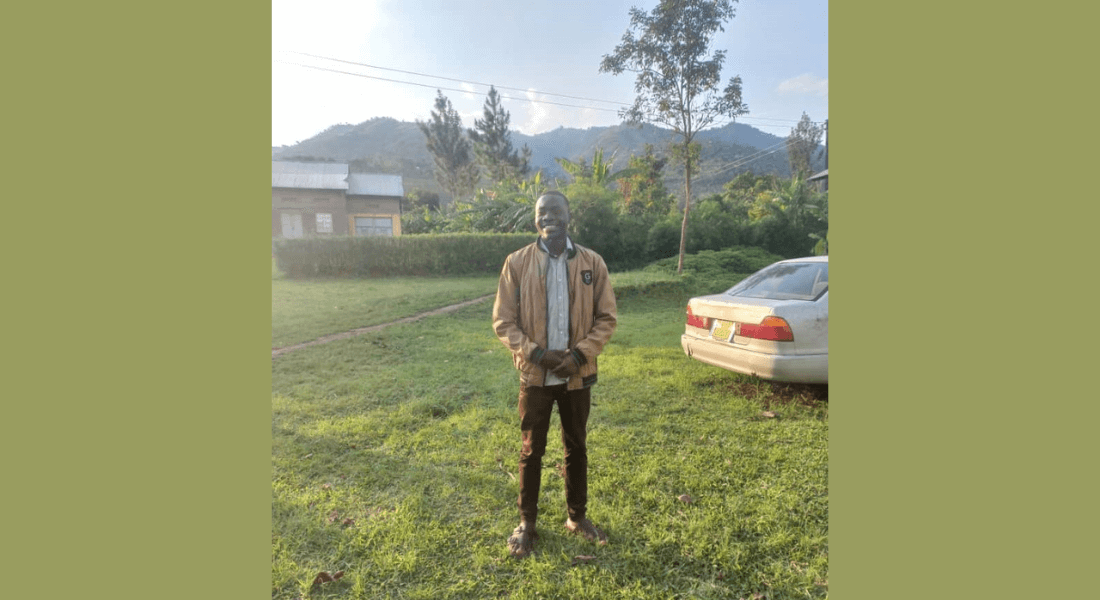Master Thesis Presentation: Jonathan Mwesige
Jonathan Mwesige, CERTIZENS member and recent master's graduate at the Department of History Archeology and Heritage Studies, Makerere University, presents his thesis on 'Separatist Movement and Identification Documents: A case of Toro District, 1954-1982'.

Separatist Movement and Identification Documents: A case of Toro District, 1954-1982
What is your research question and where and how did you go about doing your research?
My research focuses on how specific kinds of identification documents were used to assert authority during the separatist movement in Toro district in Western Uganda in the early 1960s. The research was carried out in the districts that previously made-up Toro district. The area experienced the Rwenzururu separatist movement in 1962, which used identification documents in the form of the ‘Rwenzururu tax receipts’ to demand loyalty and seek recognition from the people around Rwenzori mountains. Simultaneously, the Ugandan central government maintained its control over people in the claimed territory by using ‘graduated tax receipts’ as a form of identification documents.
In my research, I used archival sources that included correspondences written between the 1960s and 1980, and oral interviews carried out with former chiefs who issued the identification documents during the 1960s. These included leaders of the Rwenzururu separatist movement and those of the government during 1960s. Written sources about the Rwenzururu movement and actual copies of identification documents were used for triangulation.
What were your key findings and why do they matter?
The study established that identification documents were a tool of influencing people’s perception on the rightfulness of a certain state in Toro district. Possessing one of the illicit Rwenzururu identification documents made local residents into supporters of the movement and placed them in a vulnerable position which forced them to keep activities of the movement hidden from the central government. Identification documents on both sides were used to try and control people’s loyalty and tie them to one authority or the other. A former ally of the Rwenzururu army noted that “possessing the Rwenzururu tax receipt meant that you had become their supporter. This made us to keep their activities a secret from the central government.”
The research also establishes that people in Toro District lived in unstable relations with the two contesting ‘state’ entities (the separatist Rwenzururu movement and the existing central government). Ordinary people had to navigate between the two entities by hiding or keeping the identification documents separate. People were compelled to use identification documents in different ways and spaces, depending on which authority was powerful in a given area. An 86-year old respondent noted: “If you were moving around the mountain areas, you had to keep the central government’s receipt very far and put the Rwenzururu tax receipt in the nearby pocket. When you wanted to go to the lowlands of the mountain, you had to keep the Rwenzururu identification document very far and keep the government identification document in the nearby pocket”. These findings help to understand the meaning of identification documents for state-citizens relations especially in such contested areas, illustrating how co-existing and competing documents can both restrict and enable people and states.
Why is your research relevant for the broader discussion on IDs and citizenship in Africa?
This research expands on the meaning and effects of identification documents, on how they should be understood contextually, and what kinds of practices they generate among both people and states. The thesis suggests to researchers and policy makers that the significance of IDs is beyond the material document itself. Their meaning depends on how they are used, and that their use even in everyday life is key to forms of recognition of state authority, and hence to state making.
Read the full thesis at the repository of Makerere University or contact the author via jonathanmwesige8@gmail.com
